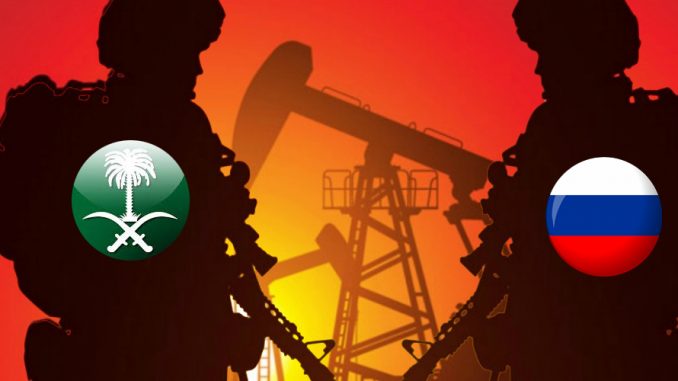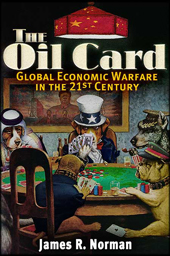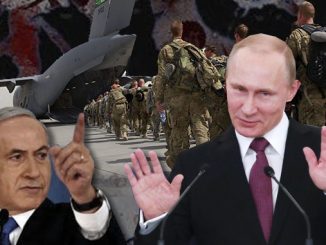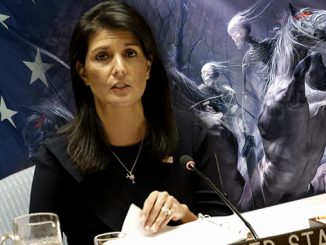
U.S. shale oil producers may be the victims of this petroleum production battle.
By Richard Walker
While lower gas prices at the pump are welcome, an oil war between Russia and Saudi Arabia has the potential to drag in the United States at a time when the Covid-19 virus is playing havoc with stock markets around the world.
The oil war began when Russia and the Saudis, who represent the OPEC oil cartel, had a major disagreement over supply levels—not to mention being on the opposite sides of the war in Syria. All of a sudden, an agreement they’d had in place for three years to control supply and therefore the global price of crude oil was in tatters. The Saudis fired the first broadside by demanding that Russia agree to a cut its oil output as a ploy to reduce supply and raise the price of crude. Russia said it would do no such thing. It had been sanctioned afresh by Washington for propping up Venezuela’s oil industry and needed cash from oil revenues. President Donald Trump had imposed the sanctions because Russia’s support for Venezuela’s President Nicolas Maduro conflicted with his efforts to remove Maduro from office and install a new regime in Caracas.
The Saudis, who have been facing a shortfall in much-needed oil revenues, responded to Russia’s refusal to cut back its output by flooding the market with even more oil, collapsing prices worldwide. Some observers saw the move by Saudi leader Mohammed Bin Salman as yet another example of his impetuosity. Moscow’s response was a defiant bring-it-on strategy. Moscow feels it has the upper hand. It pointed out that it was better able to cope financially with an oil war, even if it lasted a decade. Russia was sitting with more than twice the amount of Foreign Currency Reserves as Saudi Arabia. Those reserves confirm how much money a country has put away for a rainy day in order to be able to pay its international debtors and the goods it imports. For several years, Saudi Arabia has been running up more debts than it ever did, as oil prices have not been what they were in the past. As far back as 2015, the Brookings Institute was warning of a Saudi economic time bomb.
But this oil war may not be limited for long to these two big producers. The world’s largest oil producer, the United States, may not be able to remain apart from the fray. Complicating matters for President Trump is that he claims to have good relations with Moscow and Riyadh. However, his suggestion that he might have to intervene was rebuffed by Moscow and not necessarily welcomed by the Saudis. Russia essentially told the president to butt out. A Kremlin spokesman told the media that no one should interfere. It was a dispute about pricing and relations between Russia, and Saudi Arabia remained on firm ground. That was, of course, nonsense.
What is especially interesting is that the Russians and the Saudis have both been unhappy since the U.S. became no longer dependent on foreign oil. The production of shale oil through fracking in the U.S. has made America the world’s number one oil producer, thereby reducing the influence the OPEC cartel once had on the U.S. economy and its foreign policy. Shale oil output has also bolstered America economically, a fact not well received in Moscow and Riyadh. For years, Moscow and Riyadh have been asking the U.S. to cut back on its oil production to ensure better market prices for their product, but Washington has pushed back with a firm “no.” Therefore, from a Moscow perspective, the recent Saudi demand that Russia cut its oil supplies only favored America’s shale oil producers whom Russian oil giants reckoned would sell their oil to more markets at favorable prices.

Nevertheless, as oil prices drop, smaller producers in the U.S., unlike big boys such as Exxon, may not be able to weather the storm were it to last a decade because they are carrying large debts. So, too, are banks underpinning them. Therefore, the White House may have to consider whether it should try to broker a deal between Russia and the Saudis. A deal would be unlikely to succeed, leaving the only other option to take sides.
President Trump may conclude that he has a better chance of squeezing the Saudis to make a deal with Russia than of forcing Vladimir Putin to accede to Saudi demands to reduce Russia’s oil output. The Saudis are more vulnerable financially and have been carrying increasing debt, whereas Russia has made considerable efforts in the past eight years to insulate itself from external financial pressures. It was forced to restructure its economy as a result of Western sanctions. The spread of the Covid-19 virus, however, has added serious instability to world markets with many reducing their need for oil. An expanding oil price war would not only impact oil producers big and small but damage a massive industry that is not only defined by oil but by all the products originating from it and the money flowing from it. Whatever President Trump does, he will probably be wooed by shale producers to petition Congress for more stimulus packages to see them through an oil war and to service their debts. Congress might not see the problem as one that it needs to address during this pandemic.
Richard Walker is the nom de plume of a former New York mainstream news producer who grew tired of seeing his articles censored by his bosses.






History warns that global economic wars lead to military conflict. Mankind has had two world wars so far and seems set on another one.
https://www.ghostsofhistory.wordpress.com/